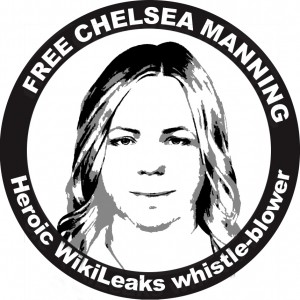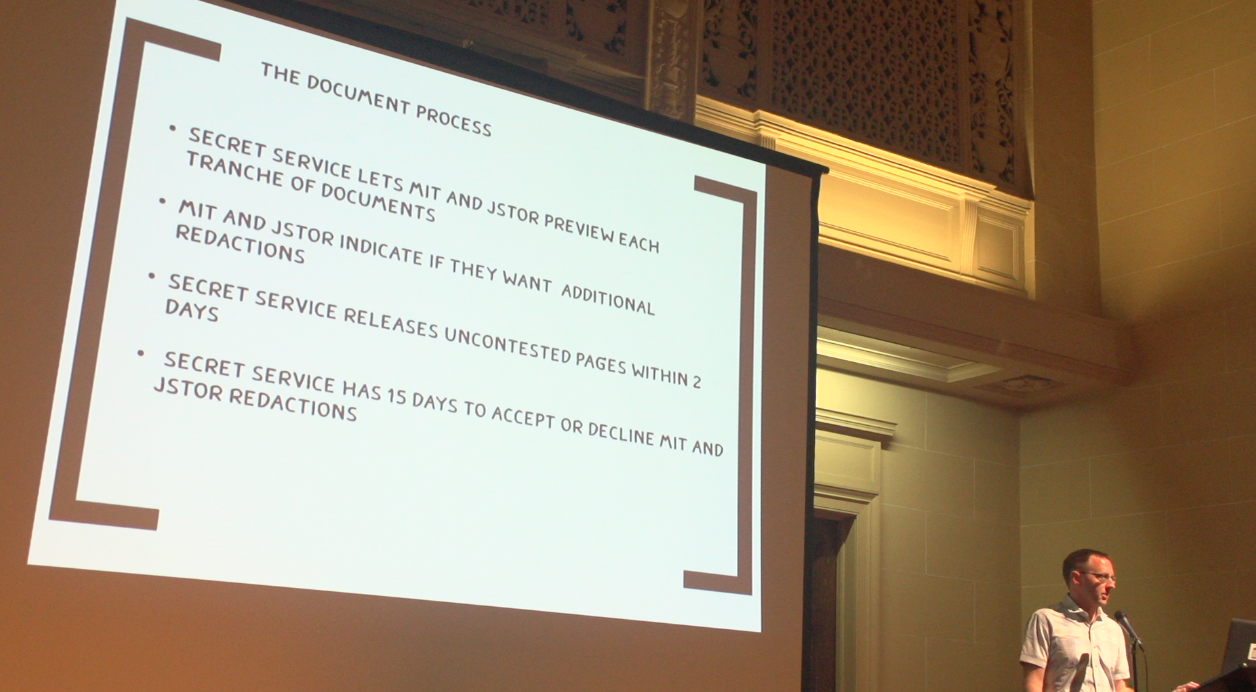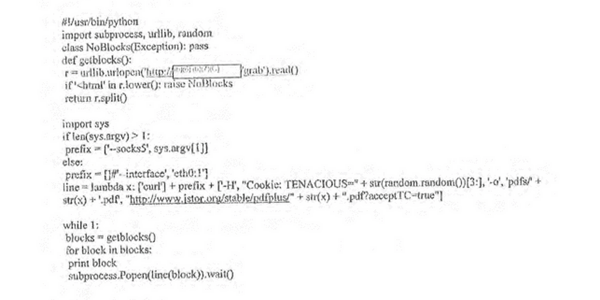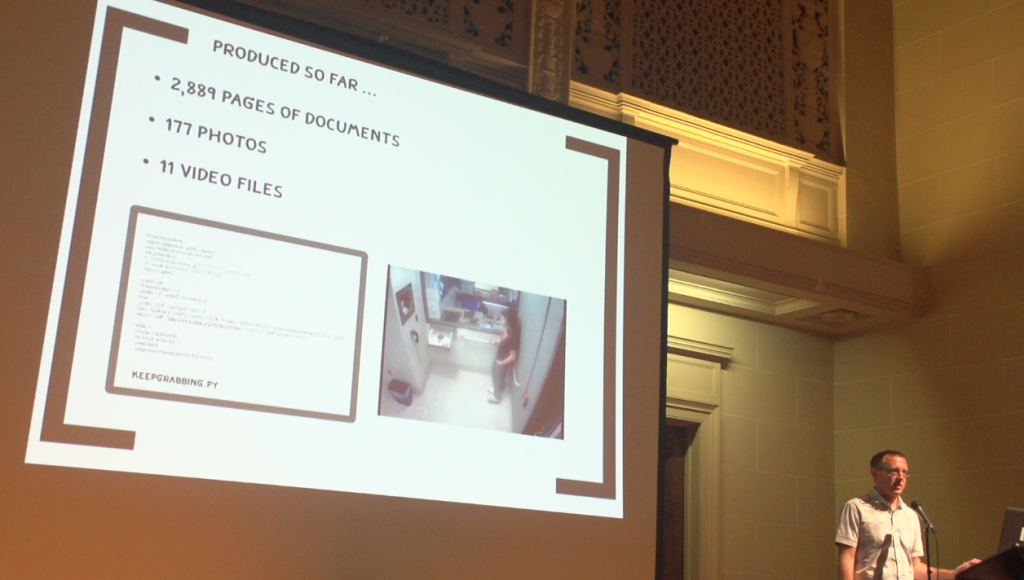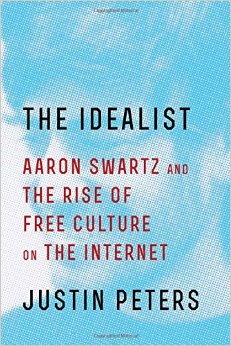 In the days immediately following Aaron’s death, Justin Peters was one of the many reporters that contacted me in the hopes of figuring out what happened.
In the days immediately following Aaron’s death, Justin Peters was one of the many reporters that contacted me in the hopes of figuring out what happened.
I wasn’t much help at all figuring that out, because, at the time, I had no idea about the situation, except what I had read in the press.
What I could tell them about was Aaron in his youth, what it was like working with him when we were starting Creative Commons, a bit of the ideology behind it, and some of the movements that followed.
Most of the reporters weren’t as interested in Aaron’s history as much as the tragedy at hand. Justin Peters, who was writing an article for Slate magazine, was different. He seemed to care not only about what had happened, but also, what events could have possibly led up to that outcome, on a historical scale, in the context of everything else going on during the time.
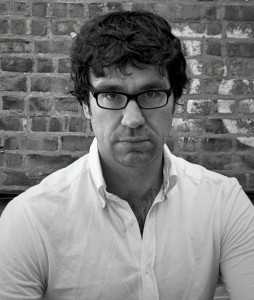
He was obviously trying to understand a lot more than the basic facts of what had taken place. He was asking real questions, trying to get to the bottom of the mess, but also asking the larger, looming questions, like: how could something like this happen in our democratic “free” society? How do things exist in our country like having to pay by the page to access the law (as is the case with PACER) or having to pay $50 an article to access anything more than the abstract of a scientific journal (unless you had already bought your way into a prestigious university)?
We talked about a lot of subjects that might have seemed tangential to many. Aaron was involved in a lot of different important projects, all at once. Justin seemed to be trying to understand how it all fit together. I spoke to Justin for a long time on two separate occasions. The second time we spoke, he admitted that he wanted more information for something “that might go beyond this story for Slate.”
The Slate article came out and was quite comprehensive. A few months later, I heard that Justin had gone on leave from his job to write an entire book on Aaron Swartz.
That book just came out January 12th. It’s called The Idealist.
I caught up with Justin to ask him about what kinds of things he learned in the process of writing the book.
Lisa: How was it that you came to realize that you really felt the like to wanted to create a book on this topic?
Justin: Even though the Slate article turned out to be 15,000 words long, I felt that I was barely scratching the surface of the story of Aaron’s life and the circumstances of his death. In order to tell the full story, I would have to explain just how we got to the point where academic research papers were considered private property, and downloading those papers without explicit permission could be deemed a federal crime. And I eventually realized that the only way to adequately answer these questions – which seemed so central to understanding Aaron’s story – would be to write a full-length book. Once I came to that conclusion, there was no turning back.
Lisa: Did anything specific make you say to yourself – I want to keep going with this. (When you were researching.)
Justin: In August of 2014, I went to Champaign, Illinois to look at the personal papers of Michael Stern Hart, the founder of Project Gutenberg. At that time, the book was not going well: the chapters weren’t coming together, I was struggling to connect the history sections with the Aaron Swartz sections, I was close to blowing my first deadline, and I felt stymied by my own authorial limitations and basically wanted to just give up on the project. And then Hart’s personal papers turned out to be really, really fascinating and rich in detail. The two days I spent in the archives there, researching the genesis of Project Gutenberg and the life of its creator, really gave me a second wind—and gave me an obvious bridge between the history chapters and the modern-day chapters. I walked out of the archives saying “I know how to do this now! I have to tell this story!”
Lisa: Let’s talk about that. It sounds like you had one vision of the book going, that wasn’t working out, and you became inspired after looking through the personal papers of Michael Stern Hart. How did you even end up looking at his papers? How does Project Gutenberg tie in with Aaron’s greater story?
Justin: Yeah, that’s basically right. I had always known about Project Gutenberg, but I didn’t realize that it had been around in one form or another since 1971. When I learned that, I started thinking “Wow, that’s super early! I bet there’s a good story there.” I love archives and primary sources—there’s no better way to learn about a person than to examine his or her own writings—so when I learned that Hart’s papers had been preserved at the University of Illinois, I booked a ticket to Champaign almost immediately. And as soon as I started examining his papers, I found that Hart sort of reminded me of Aaron, in terms of his idealism, his precocity, and his interest in free culture. Project Gutenberg was perhaps the first digital attempt to digitize public domain material and bring it to the masses for free. I see Hart as a kindred spirit to Aaron, and the story of Project Gutenberg as very much a predecessor to Aaron’s own work with the public domain.
Lisa: Do you see what happened to Aaron as sort of the latest chapter in an ongoing struggle between Copyright and the Public Good?
Justin: That’s absolutely right. This struggle has been going on for literally centuries. Over the last several decades, the people who have advocated for longer copyright terms have been winning. They’ve been very successful in not only lobbying for laws that support their position, but in making the argument that longer copyright terms serve the public good; that functionally eternal copyright benefits the public by ensuring that authors will see more profit from the sale of their works, and thus hopefully write more works. Every time a new communications technology becomes popular, this struggle renews itself, with increasing ferocity. Aaron was, in part, a casualty of this struggle.
Lisa: My takeaway from the early chapters in the book was that The Statue of Anne’s existence was never actually to “protect authors,” but rather, was aimed at securing publisher’s profits, from the beginning. Is that correct?
Justin: The British publishers and printers who lobbied for the Statute of Anne in the early 18th century wanted to protect their own interests first and foremost. They knew that a copyright law would help stabilize their own businesses and their own profits, and help stifle competition in the industry. And they realized that the best way to obtain that law was to convince Parliament that the law was primarily meant for the benefit of authors and readers. The printers were being disingenuous, and they knew it.
That said, the Statute of Anne did end up helping authors. That’s important to acknowledge. By decreeing that copyright belonged to the author, as opposed to the publisher or printer, Parliament gave British authors a measure of control over their own works, and framed copyright as a production incentive instead of just a censorship tool. Authors in England had absolutely zero legal standing prior to The Statute of Anne. The Stationers’ charter didn’t mention authors at all; it was all about giving printers absolute and perpetual control over the works they published. By saying — however disingenuously — that authors themselves held the right to copy their own works, the Statute of Anne at least advanced the notion that the author was an integral part of the publication process, and I think it’s fair to interpret this as a step up for authors from where they were before.
Lisa: One last thing: Am I to understand that Noah Webster of all people is mostly to blame for convincing our country’s early politicians to adopt systems much like England’s copyright infrastructure, state by state, after The Articles of Confederation were established?
Justin: If anyone deserves the title of “The Father of Copyright in America,” it’s probably Webster, who, as a young man in the 1780s, went around lobbying the various state legislatures on behalf of authorial copyright. Before he compiled his famed Dictionary, Webster was a tremendously ambitious young striver who had written a spelling textbook that he hoped would become nationally popular, and in the process, make him rich and famous. So he spent years making the case for copyright—and for himself—to legislators and civic leaders across the new nation; when Congress passed the first federal copyright act in 1790—the law was based on the Statute of Anne—Webster took credit for having brought the matter to the nation’s attention.
Lisa: You just wrapped up your book tour, but you mentioned you were open to doing more book signings or events in the future?
Justin: Yes. Please contact me on Twitter @justinrevett or email me at: justintrevett at fastmail dot fm, if you’d like to try to bring me to an event in your town. Thanks.




